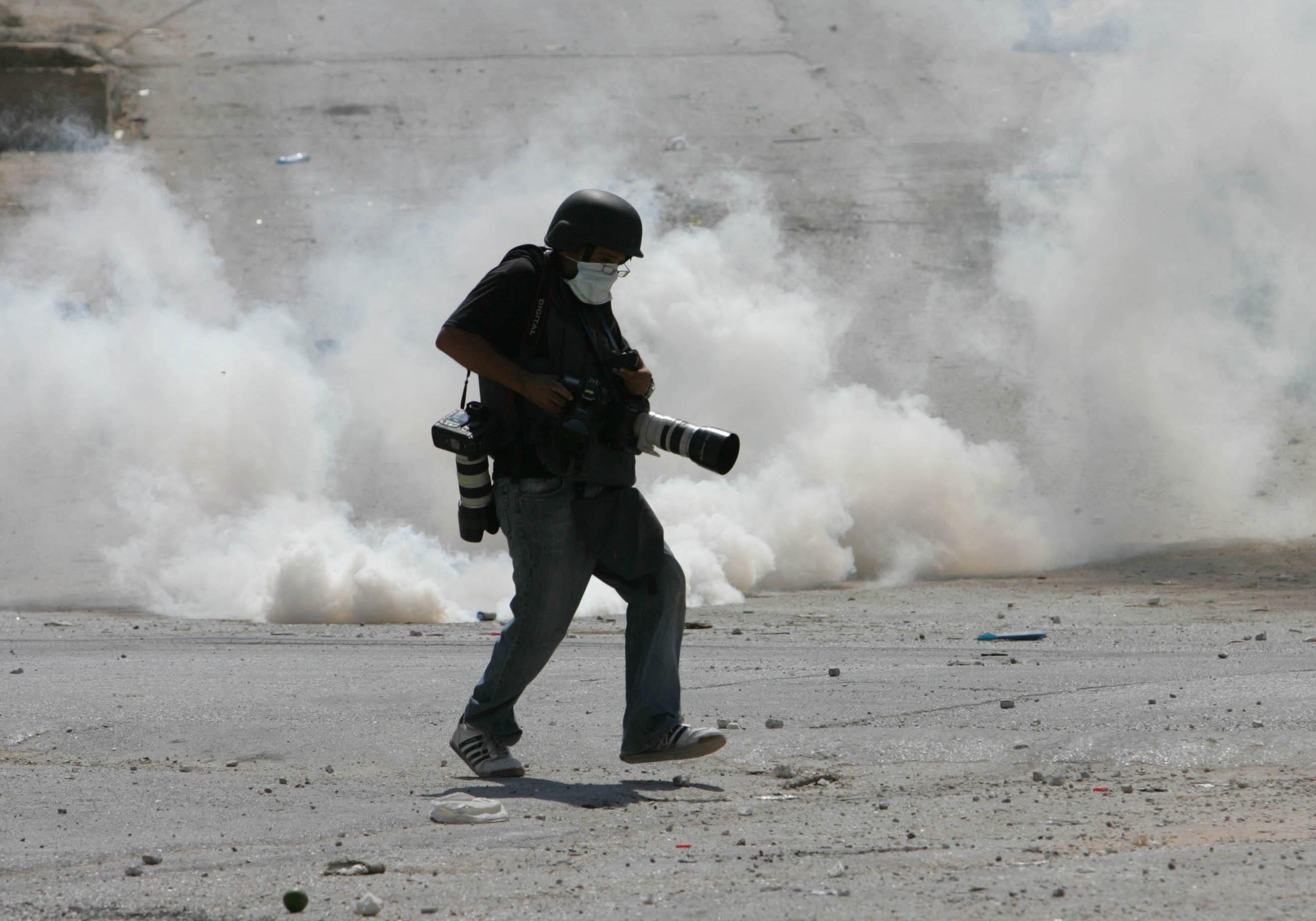
5:30pm-7:00pm on Thursday 3 April
Cambridge Union Society, Keynes Library , 9A Bridge Street, CB2 1UB
A panel that will discuss personal and past experiences of working in war zones and hostile settings with a look to the future of what is needed in order to safeguard journalists
Press risk their lives to tell stories from conflict zones but at what cost and why? How is the broadcasting industry evolving to allow crucial content to still be obtained but without putting the lives of journalists at risk? What skills does today’s foreign correspondent need in order to not only stay safe, but stay alive?
'The death toll among journalists in Gaza was staggering, almost incomprehensible. Data compiled for Killing the Messenger by the Cardiff School of Journalism showed that 81 of the 145 journalists who died around the world were from Gaza.
To get a real sense of scale, in a country the size of Britain, this would equate to over 2,500 journalist deaths in a year,’ writes INSI director Elana Cosintino who will be speaking on this timely and highly relevant panel, Keeping the Storytellers Safe in War.
In this session, chair Saleyha Ahsan will examine the subject through a discussion with senior news editors who have to deploy correspondents to austere settings, senior security advisors, filmmakers and correspondents and also with those leading organisations monitoring the situation whilst advocating for the safety of press operating in war zones.
How has the current high risk situation affected the news we consume? Facing personal risks and possible attacks, how does the correspondent remain objective? What experiences of healthcare in armed conflict did they experience and how are decisions to deploy affected by the fact health system in such settings are also possibly targeted? In today’s wars healthcare and press are targets.
The conversation will cover how to keep journalists safe whilst also ensuring crucial content can still be obtained. Digital technology is revolutionising how content is obtained for news. What does it actually involve? Will this mean journalists no longer have to risk their lives to ensure stories from war are not missed?
In this timely session we put journalists, security leads, editorial and safety networks together to discuss the present situation and the future of war reporting.
Panellists:
Tim Singleton Head of International News at Sky News
Dr Mark Grant Vice President of Global Safety, Risk and Resilience Associated Press
Vanessa Bowles Award winning London-based Lebanese/British documentary producer-director.
Elena Cosentino Director of International News Safety Institute (INSI) Former journalist, current affairs documentary filmmaker CNN, ITN.
Diana Magnay International correspondent and former Moscow correspondent reporting on Russia and its neighbours (until 2024) for Sky News.
Welcome by Dorothy Byrne, President of Murray Edwards College, former head Channel 4 news and current affairs.
Final comments and closing by Professor Kamal Munir, Pro-Vice Chancellor (University Community and Engagement), University of Cambridge.
Chair: Dr Saleyha Ahsan

